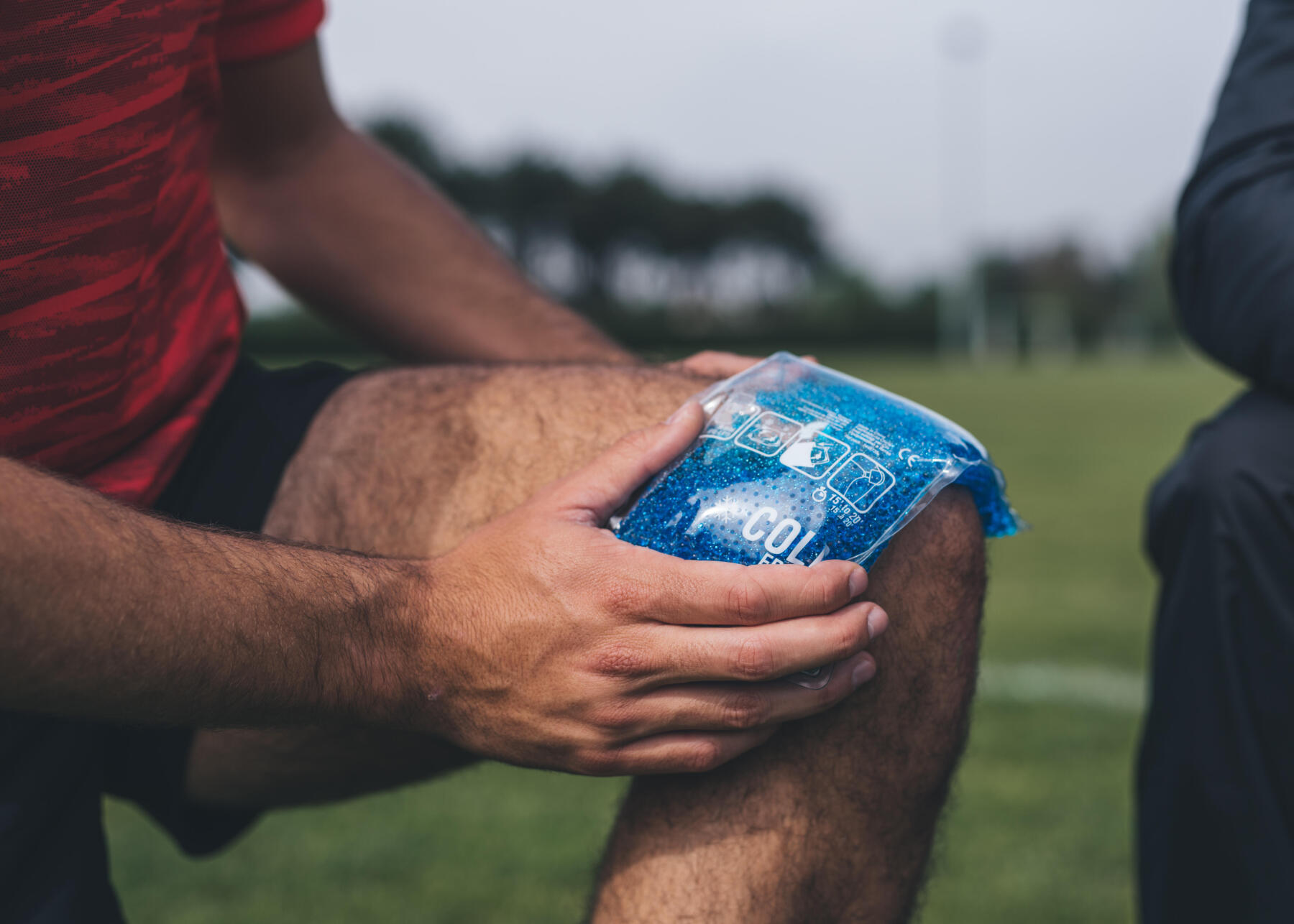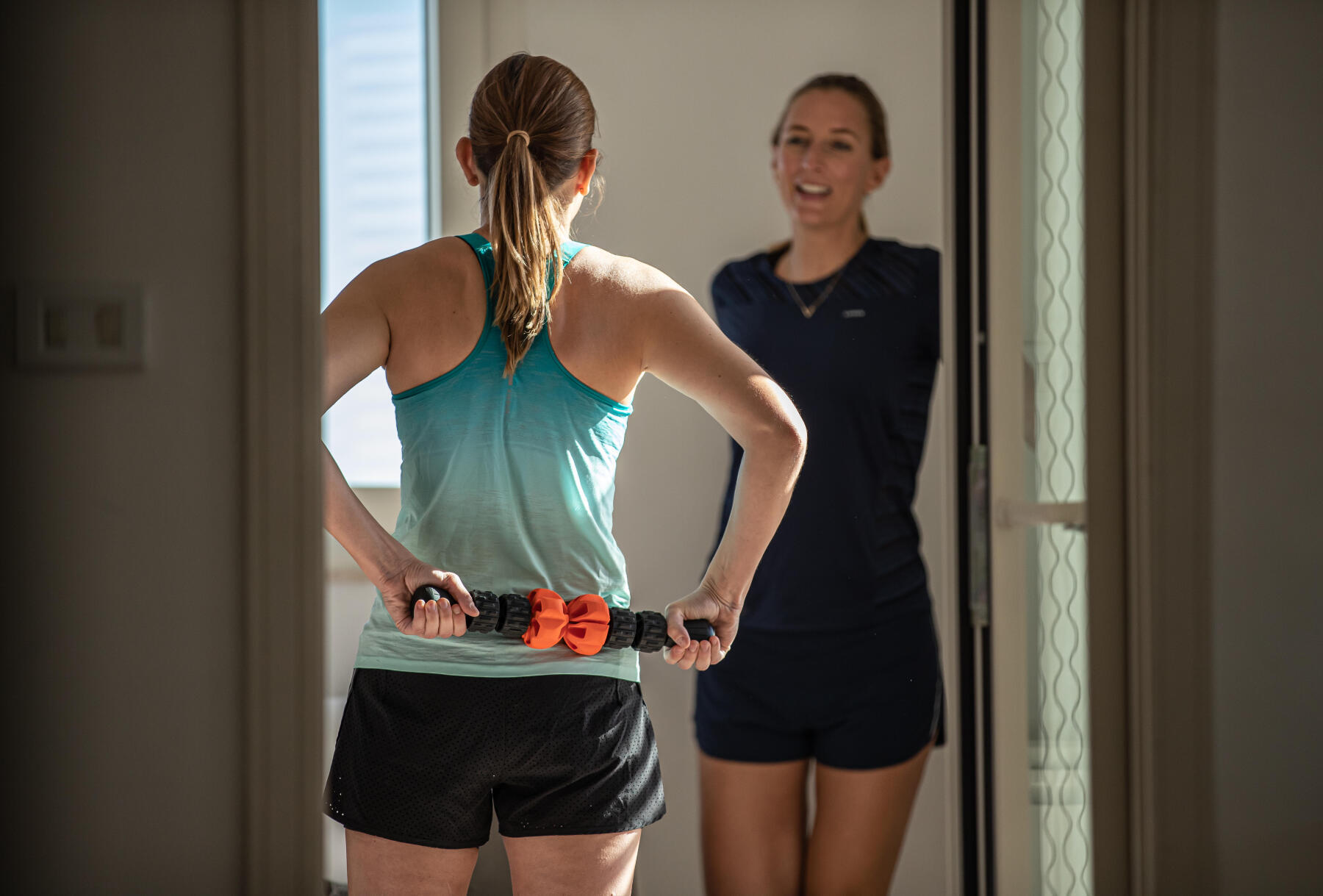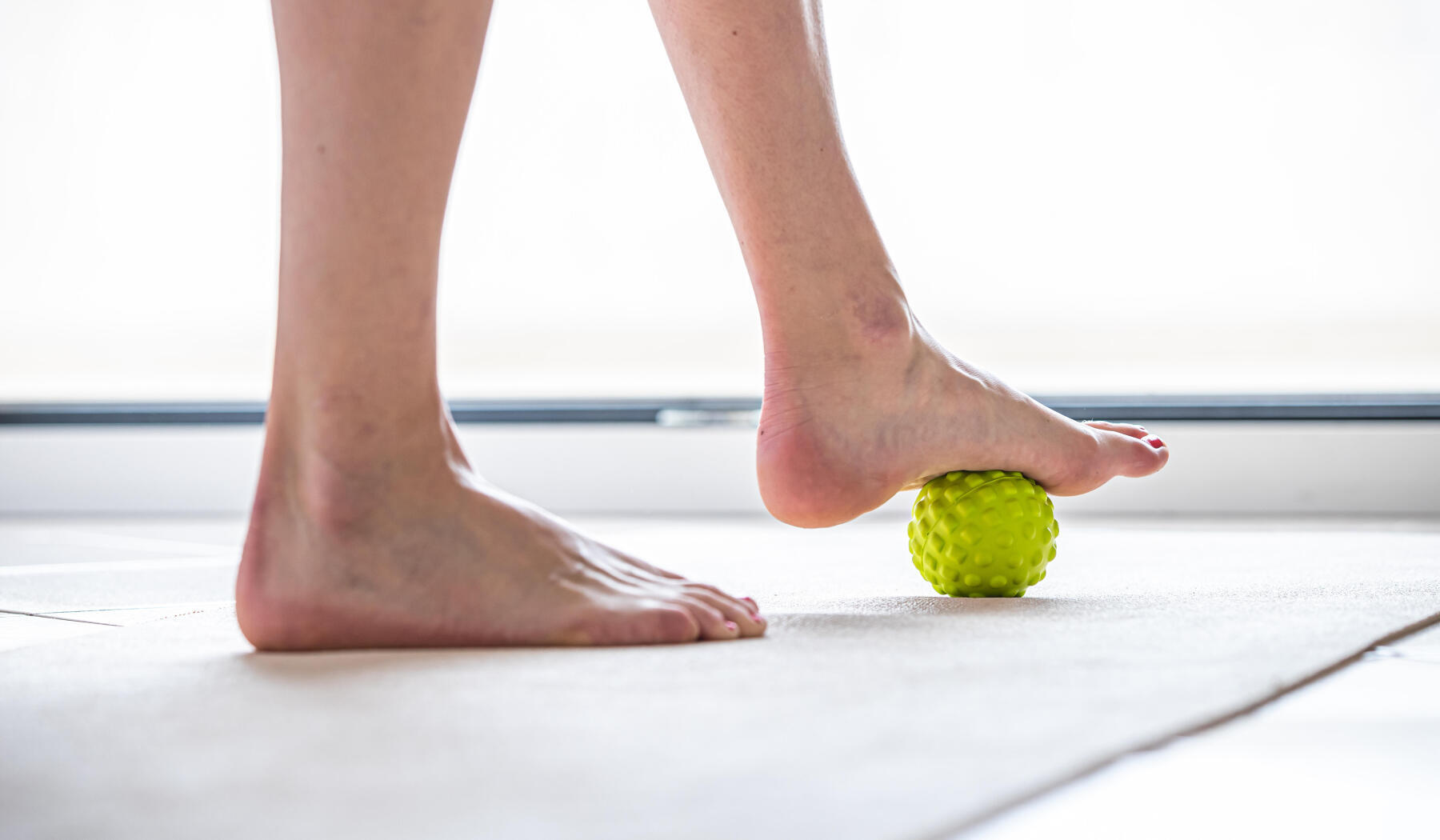1/ Recovering well after a football training session or match
Football puts a great deal of stress on the legs, lower back, and feet.
Read on for recovery methods for each part of the body:

Recovery is essential for taking part in multiple training sessions and matches. Read on for advice from Pierre Yves, our physical therapist partner, on ways to recover after football training or a match.
Recovery is essential for anyone who wants to progress, avoid injury, and feel good. This is even more true for football, an intense sport where players run kilometres, accelerate rapidly, jump, and more.At the start of every season, a third of injuries are caused by training and two thirds during matches!
There are two things you can do to prevent this: special physical preparation and a good recovery session to avoid fatigue and thus the risk of injury.
Here we've got some different ways you can recover after a training session or a match and a recovery routine you can use after a football tournament. Let's go!
Football puts a great deal of stress on the legs, lower back, and feet.
Read on for recovery methods for each part of the body:
The leg muscles under the most stress during a football match or training are the hamstrings, quadriceps, calves, adductors, and thighs.
To relax the muscles, we're going to try a massage. You can use massage cream or oil and self-massage accessories:
- massage roller, soft or hard. Here you use your body weight for a deep massage. There are also vibrating rollers for a more in-depth massage.
- massage stick, you can use this to exercise as much or as little pressure as you want.
- massage ball, allows you to focus on a particularly painful area, ideal for massaging the buttocks.
- massage tool, a small, practical item with a vibrate function.
- massage gun, for a powerful massage of painful areas.
NB: One of the most common football injuries is strained hamstrings from repeated sprints. It may be worth massaging this area to improve the flexibility of the muscle and to stretch, in addition to strengthening the hamstrings.

Cold can also be used to reduce painful inflammation in the joints (particularly in the knees which are under a great deal of stress during the game) using cold compresses. An ice water bath is recommended to reduce aches.
Electrostimulation is a very practical way to effortlessly relax the muscles.
Compressing the calves using compression socks can reduce muscle pain and improve circulation. Best worn at the end of training or a match and for 1.5 to 2 hours.
Gentle stretches for 15 to 20 seconds to relax the muscles.

Massaging with:
- a massage roller across your entire back.
- a double massage ball roller specifically designed to massage the paravertebral muscles.
- a massage stick adapted to the shape of the quadratus lumborum.
Stretches.
A warm compress or bath to relax your back.
Electrostimulation.
To relax the arch of the foot, try a massage ball.
In addition to these methods, it's important to pay close attention to your sleep (which is when the body recovers) and to your diet. If you want to know how to eat properly before, during, and after sport, take a look at our advice:
We've just seen various methods for recovering after training or a match, but make sure not to necessarily follow them to the letter during a football tournament.
A hot bath to relax could create additional fatigue, too much stretching can cause aches, etc.
Here's a recovery routine that you can easily use during a tournament:
- A short, light stretching session on the pitch after training; 15-20 seconds of light stretching per muscle (you're aiming to feel a stretch, but not a big one). The muscles to be stretched are the calves, hamstrings, glutes, and quadriceps. These stretches will slightly reduce muscle tone to make you feel more relaxed.
- Head to the showers for a touch more recovery: cryotherapy using cold water on the legs for a few minutes. Less effective than immersion in a cold bath but much easier to put into practice!

- Self-massage in the changing rooms.
Massages with a roller: calves, hamstrings, quadriceps and TFL (side of the thigh). 2-3 min per muscle is enough and for some areas, like the calves, you can work on both sides at once to save time (if pressure on the muscle is enough).
Other areas can also be worked on as well if you feel the need (back, thighs, etc.).
Another very important area for footballers, but one that is often neglected for recovery: the feet! Massaging the arch of the foot with a massage ball can help relax the foot.
- One last recovery technique that is particularly useful, particularly after an away game: electrotherapy. Focus on the thighs to accelerate venous return. If you're not sure, it can be combined with being stretched out on your back, with your legs in the air to increase the effect.
And there you have it, a 4-step routine, but don't forget the basics!sleep, diet, and hydration.
To dive deeper into the topic, this article explains why it's so important to recover well, and explains each kind of recovery method:
As you'll have understood by this point, giving yourself some time to recover will help you continue training and playing in matches while helping minimise injury and help you feel good. Use and abuse this recovery routine so you can keep playing for as long as possible!

Our partner physiotherapist